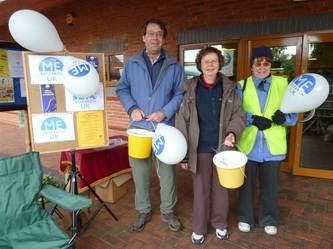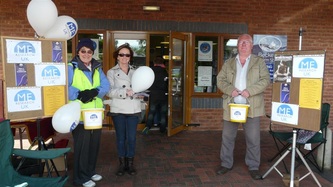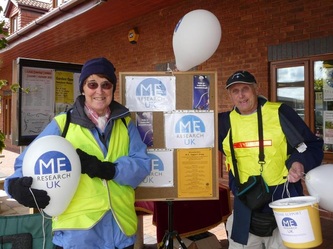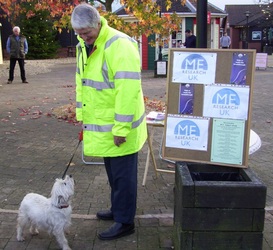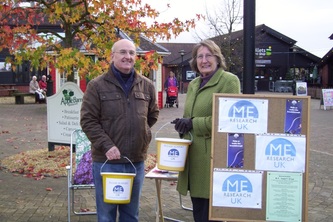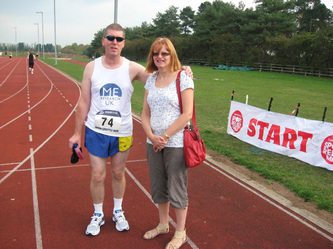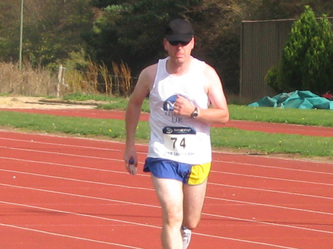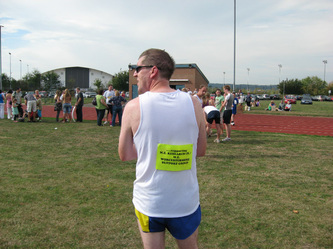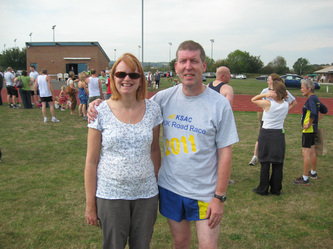News
Peter Luff MP, Mid Worcestershire at our February Droitwich meeting - He will be joining our Droitwich meeting on Friday 3 February at the Methodist Church, Amphlett House, Worcester Rd, Droitwich, WR9 8AW, from 1.30 pm.
“Dick Whittington”, 20 - 28 January, Stourport Civic Centre
Next January, the Stourport Monday Night Group’s production will be “Dick Whittington” - please tell your friends. Every penny of profit from the Stourport Monday Night Group’s pantomimes goes back into the local community. Over 80 local organisations benefited by over £19,000 from their production of “Red Riding Hood” last year - including our group. Help the Monday Night Group to continue helping us. They are great audience participation productions. Call 01299 825170 for tickets. Daytime and evening tickets available. Further information on their website - www.mondaynightgroup.org. 2011.11 Beryl's Bingo
Our group is receiving £100 from Beryl - our thanks to Beryl and the Bishops Frome Bingo Gang. Beryl raised £645 at her latest Bingo session - this time she advertised it as being for ME Research and the local support groups, as she wants to help us and the Herefordshire CFS/ME/FMS Group as well as continuing to raise funds for research. Beryl Compton of Stanford Bishop, on the border of the two counties, has been a member of both groups for many years. We read earlier this year that Beryl had raised £45,000 during the last 23 years, for the MEA Ramsay Research Fund. 2011.11 "Possible changes to your Employment and Support Allowance" ... -
copy of letter to claimants added to the Benefits News page. 2011-10 Raising money at the Stourport 'Shuttle' 10K run.
Steve Weeks ran in the Stourport 'Shuttle' 10K on Sunday 2 October, with a time of 1 hr 8 mins 15 sec, starting and finishing at Stourport Sports Club. He was wearing a ME Research UK vest, and was raising funds for ME Research UK (MERUK) and our Group. Steve has raised £305 to date and would welcome more funds to boost this fundraising.
UK Coalition Agreement May 2010.
Coalition Agreement document. (pdf, 475kb) (There is also a second coalition document on the Cabinet Office website.) (Also see: initial Coalition Agreement of 11 May 2010.) News feeds (RSS) for Action for M.E. News, M.E. Association and Government Legislation are now available together on the same page.
Please see the link that appears under 'News' at the top of the page. New International Consensus Criteria Update (Updated/final pdf file) -
From: www.meassociation.org.uk/?p=8280 New International Consensus Criteria for M.E., Journal of Internal Medicine, October 2011 - by Tony Britton on October 4, 2011 "We reported on 22 July that the Journal of Internal Medicine had published an online draft of new International Consensus Criteria for Myalgic Encephalomyelitis that had been signed off by 25 doctors and scientists working in the field. The document has now been proof-read and has been made available through the Journal of Internal Medicine to read in its final form. To download the pdf of the final version (which runs to 12 pages), please click HERE." 2011-10 Myalgic Encephalomyelitis: International Consensus Criteria,
!See Update above! Journal of Internal Medicine, 20 July 2011 Pdf document of the full criteria (335kb). (Pages 9-15 are references.) The full article is in text form on the M.E. Association website (for the criteria, search for Table 1 on the M.E. Association link, or see page 2 of this pdf that is on the research1st website). The pdf is clearest for reading the criteria. An International Consensus Panel consisting of clinicians, researchers, teaching faculty and an independent patient advocate was formed with the purpose of developing criteria based on current knowledge. Thirteen countries and a wide range of specialties were represented. The Canadian Consensus Criteria were used as a starting point, but the six-month waiting period before diagnosis is no longer required. There is a list of criteria for M.E. as well as a definition for "Atypical Myalgic Encephalomyelitis": the patient meets the criteria for "post-exertional neuroimmune exhaustion" but has two or less than required of the remaining criterial symptoms. Pain or sleep disturbance may be absent in rare cases. 2011-07 Voices Unlimited: raising money for M.E. Research this year.
From their website: "We are delighted to report that our recent gigs at The Swan Theatre, Worcester, raised in excess of £1,500 for our charities for 2011 - we are raising money for M.E research this year (last year it was the Breast Cancer Unit in Worcester hospital). We are just thrilled - thanks to everyone who bought tickets to the sell-out shows!" "Betty calls it a day" - Betty Hughes steps down from the Pershore Council, - but she continues as our President.
From the Evesham Observer. - The newspaper article has been archived: to view it go to http://osnpages.co.uk/osadweb/index.aspx and search for 'Betty Hughes' - the article is dated May 20 2011. A COMMUNITY figurehead and popular town councillor is taking a well-earned rest from her council duties after almost three decades of service. Betty Hughes MBE stood down last Thursday (May 12) after 28 years as a town councillor including a two year stint as Mayor. Mrs Hughes was the first ever woman to become Pershore Mayor when she took on the role in 1991 and she said it caused quite a stir in the town. "I remember it being quite controversial because it was something the town had not seen before but it was certainly something I enjoyed doing," she said. "It's time for me to move on now but I'd like to thank everyone for the support they have given me during my term as a councillor over the last 28 years. It has been much appreciated." As recognition for her outstanding service to the town council Mrs Hughes was given a stylish radio as councillors bid farewell to her last week. "They asked me if there was anything I wanted and as my old radio had broken recently I thought why not ask for something I needed. It's lovely and I'm very grateful to the town council for the gift," she added. Outside of her council duties Mrs Hughes has been involved and still is involved with a number of other organisations including the Pershore Division of St John Ambulance where she is divisional president and the Worcestershire M.E. Support Group where she is serving as honorary president. She is also a life member of the Friends of Pershore Abbey, president of the Avonvale Organ Club, associate member of Cherry Orchard First School governors association and involved with the Friends of St Marys Church in Wick, Friends of Pershore Baptist Church and Friends of Pershore Hospital. Ann Dobbins, Pershore Town Clerk, said she would be missed in meetings. "Betty was a well-respected member of the council who always had the good of the town at heart," she added. "She worked hard on the council and her thoughtful contributions to debates will be missed." 2011-05 Shropshire ME Group Annual Conference -
Saturday 7 May : Shrewsbury 'DO TREATMENTS FOR ME/CFS WORK?' Main Speaker - Jane Colby Executive Director, the Young ME Sufferers Trust (Tymes Trust) The conference is from 2.00pm - 4.00pm at the Memorial Hall, Bayston Hill, Shrewsbury, Shropshire. The centre is about 3 miles south of Shrewsbury on the A49. (2011.04) PACE Trial
(Pacing, graded Activity & Cognitive behaviour therapy: a randomised Evaluation.) A 52 week study of 641 participants who met the Oxford criteria for chronic fatigue syndrome (of which 427 met international criteria for chronic fatigue syndrome and 329 met London criteria for myalgic encephalomyelitis)..
Psychiatric misdiagnoses in patients with chronic fatigue syndrome - Tara Lawn, Praveen Kumar, Bernice Knight, Michael Sharpe and Peter D White - on behalf of the PACE trial management group (listed in protocol reference) - an ancillary study of the PACE trial
Pershore fundraising event
The Group received a magnificent £120 from one of our Pershore members who held an Open Day fundraising event at her home to help finance the room hire at Pershore Town Hall. It was marvellous to hear of this initiative. If you feel you could organise a similar event (or know someone who can) and would like some tips, please contact this member via the group [email protected](02.2011) |
